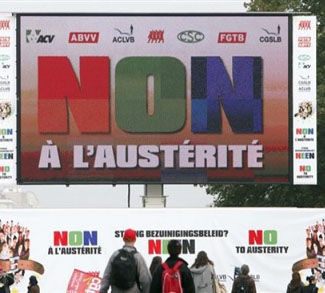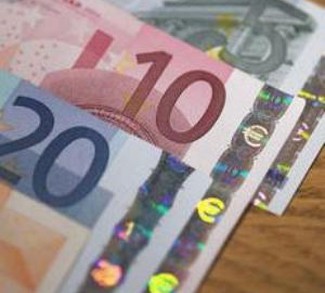A wave of popular discontent over austerity governments implemented by EU governments is starting to make its presence felt across Europe.
Thousands of demonstrators have taken to the streets in Brussels, protesting against steep reductions in public spending by several EU governments in the wake of the Greek sovereign debt crisis. Protestors have also taken to the streets in Greece, Ireland, Latvia, and Italy– all against the backdrop of a general strike that is grinding transportation to a halt in Spain.
The global market fallout from protests in Europe has so far followed a predictable course. Stocks have slid worldwide and investors continue to flock to the safety of Gold, causing prices to spike past $1,300 an ounce. Market watchers are concerned that popular discontent in Europe could derail efforts to reign in deficit spending, leading to new sovereign debt crises down the road.
France is a perfect example of this phenomenon, where speculation is rife that President Sarkozy will step back from harsher austerity measures in an effort to save his chances for re-election in 2012.
In related news, the European Commission proposed a set of ‘semi-automatic’ sanctions that would be applied to euro zone countries that breach the limits set out in the Stability and Growth Pact. If the euro is to ever regain global confidence as a hard reserve currency, Brussels needs to find a way to ensure that one weak link can’t bring the whole euro zone down. Whether or not internal ‘semi-automatic’ sanctions are the best route to achieving this largely depends on outside perceptions. In other words, since the problem is one that is caused by the subjective view of investors, it matters less that the problem is actually fixed and more that foreign currency and bond speculators believe that it is. As it stands, the lack of a euro zone bond and the inability to enforce budgetary rules will remain structural weaknesses in the euro zone over the short to medium term.




